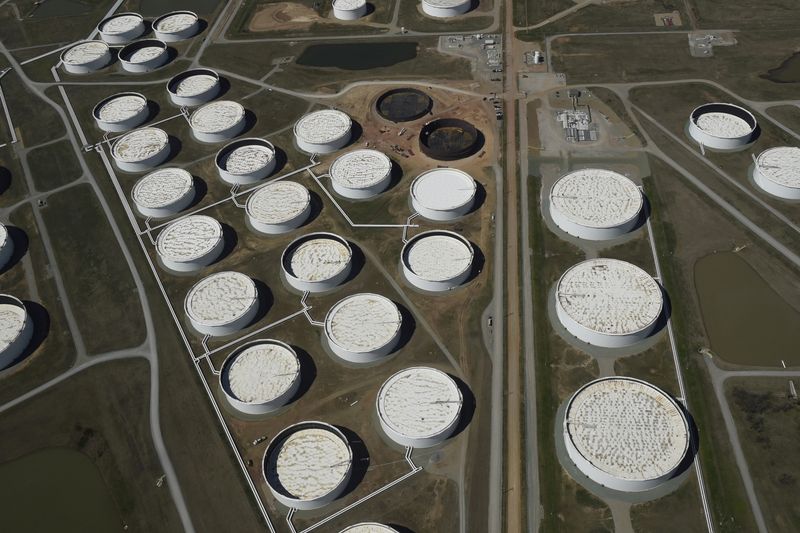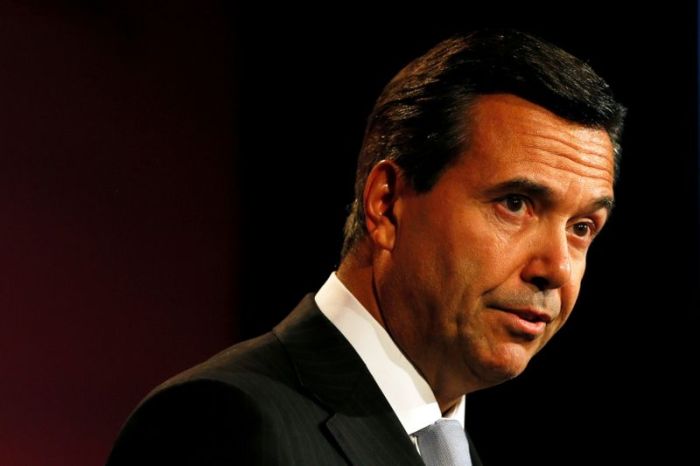NEW YORK (Reuters) -Oil prices edged up in choppy trade on Wednesday, maintaining a positive tone as investors have become less concerned that the Omicron coronavirus variant will have a dramatic effect on global economic growth and fuel demand.
Brent crude futures rose by 46 cents, or 0.6%, to $75.91 a barrel at 12:54 p.m. EST (1754 GMT). U.S. West Texas Intermediate crude was at $72.52 a barrel, up 47 cents or 0.7%.
Global benchmark Brent has rebounded by about 10% since Dec. 1 on the expectation that Omicron will only a limited impact on oil demand, after a 16% drop since Nov. 25. Early studies suggest that vaccinations against coronavirus are still effective against this variant.
“Around two-thirds of the previous price slide (has) been corrected,” Commerzbank said in a note. “There has been no noticeable slowing effect on oil demand as yet. Even aviation, the sector that should have been hit first, has seen only a marginal decrease in seating capacity.”
The market had a muted reaction to U.S. weekly inventory figures, which showed a smaller-than-anticipated decline in crude stocks and another bump up in overall production, giving credence to expectations that supply will increase in coming months. [EIA/S]
The U.S. Energy Information Administration said product supplied by refineries, a proxy for demand, was 20.9 million barrels per day over the past four weeks – exceeding pre-pandemic rates of consumer use.
“Unless travel restrictions are re-imposed, we expect U.S. oil demand to hold up in the coming months,” said Caroline Bain, chief commodities economist at Capital Economics.
The emergence of the Omicron variant combined with the U.S. decision to release inventories from its strategic reserve to knock the market back on expectations that supply would outweigh demand by the early months of 2022.
Ultimately, the Organization of the Petroleum Exporting Countries and its allies including Russia, known as OPEC+, chose to maintain its schedule of boosting supply by 400,000 bpd every month – despite fears that the new variant would sap demand.
The market was also focused on the resumption of talks between Washington and Tehran over Iran’s nuclear programme. Western officials have voiced dismay at sweeping Iranian demands. If U.S. sanctions were eased, it could lead to higher exports of Iranian oil, which could add downward pressure on oil prices.
Tensions between Western powers and Russia over Ukraine also remained high after U.S. President Joe Biden warned Russian President Vladimir Putin on Tuesday that the West would impose “strong economic and other measures” on Russia if it invades Ukraine, while Putin demanded guarantees that NATO would not expand farther eastward.
(Additional reporting by Laura Sanicola and Ron Bousso; editing by David Evans and Marguerita Choy)
























